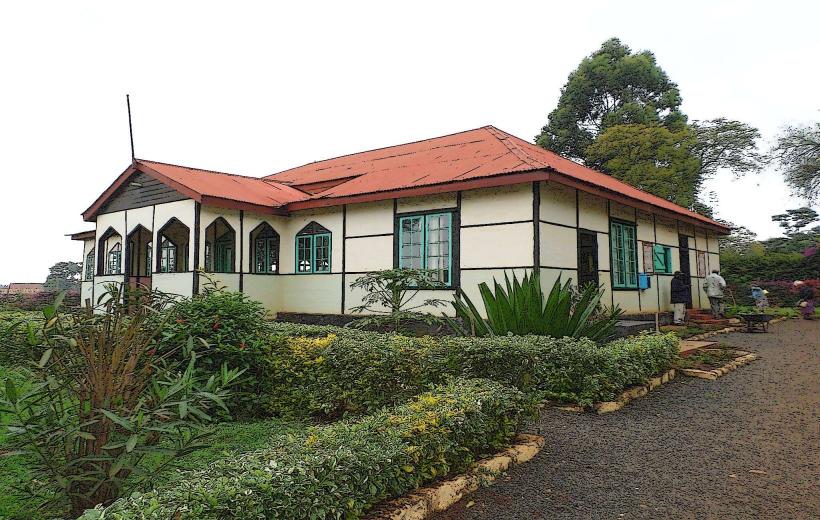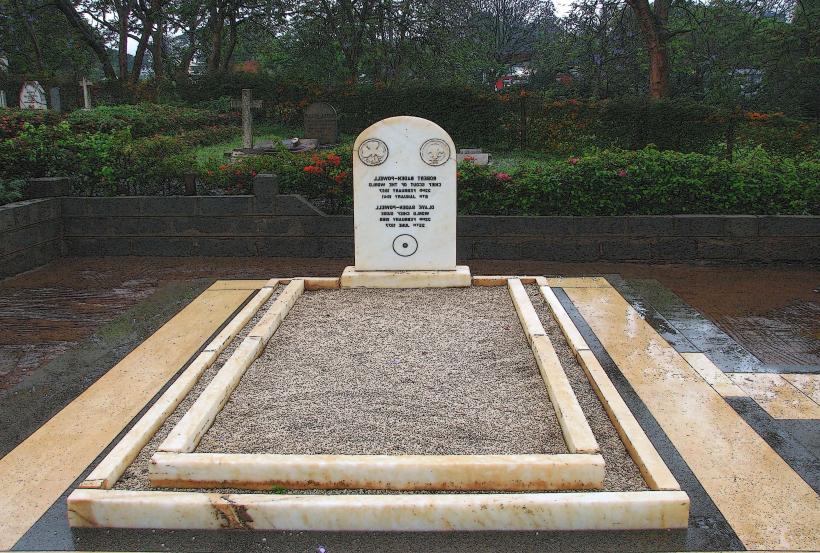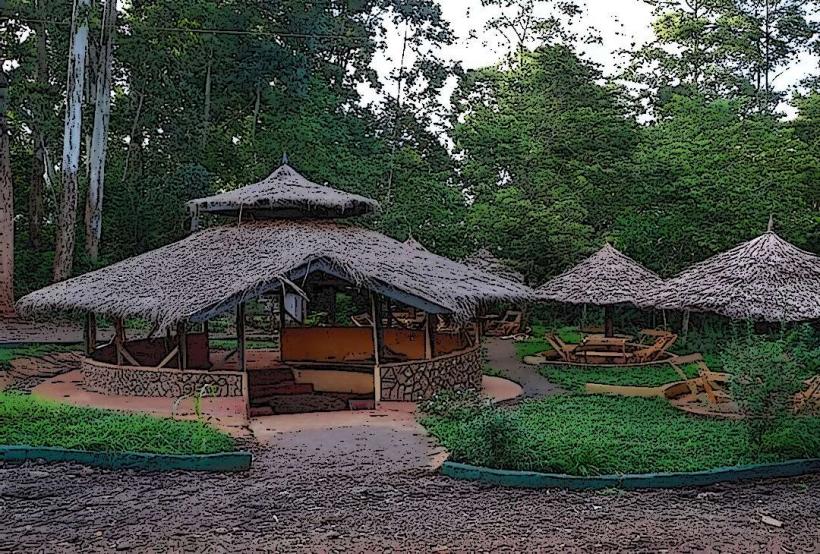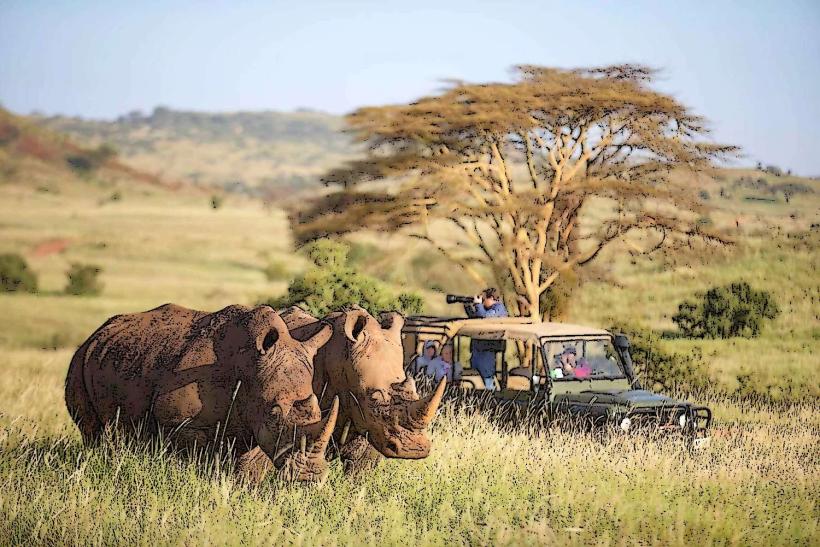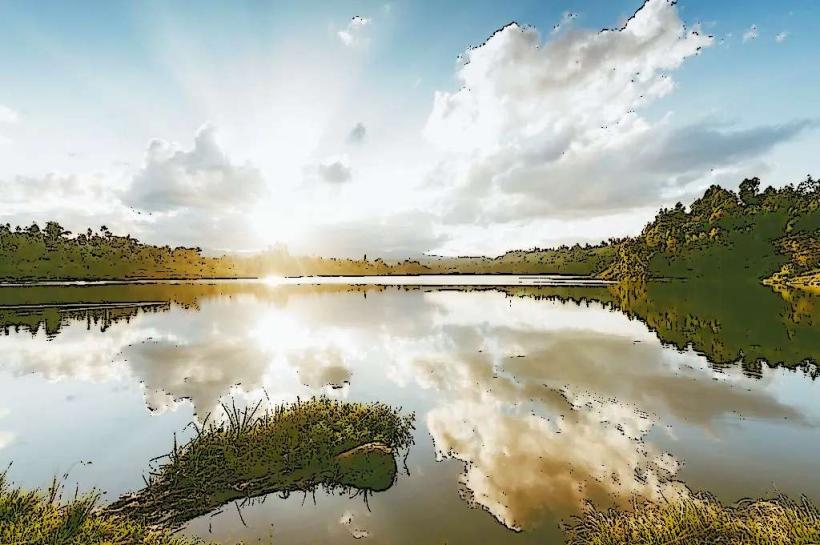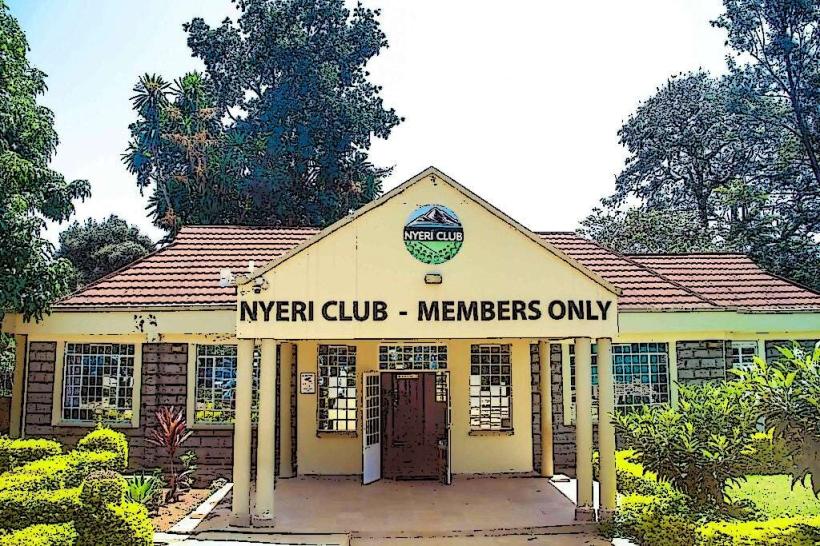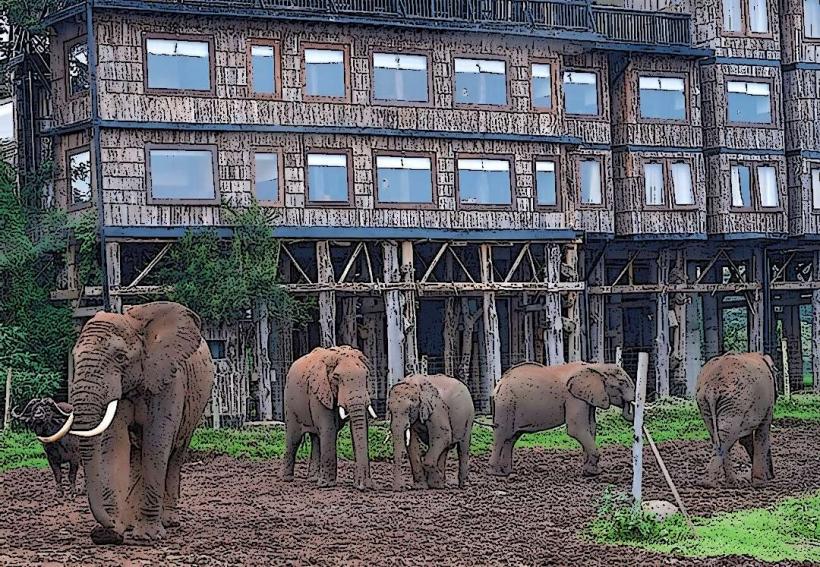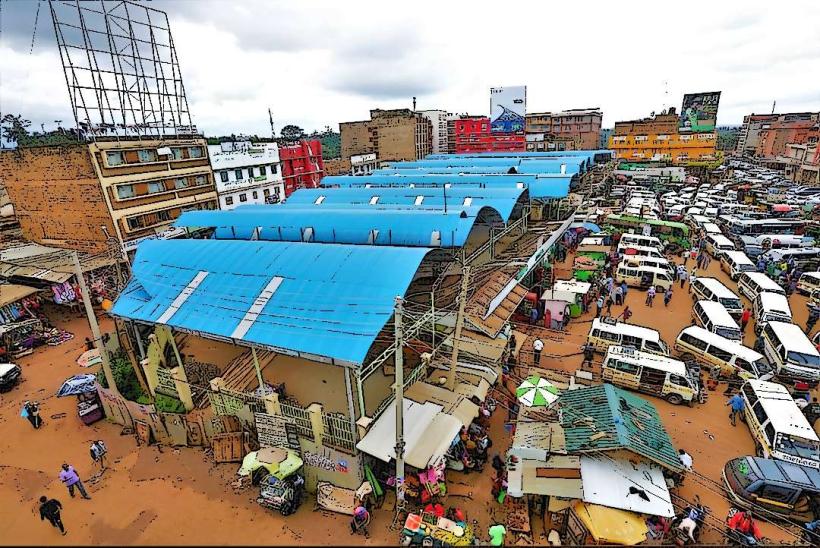Information
City: NyeriCountry: Kenya
Continent: Africa
Nyeri, Kenya, Africa
Nyeri is a town located in the Central Highlands of Kenya, in Nyeri County. It serves as the county's capital and is situated about 150 kilometers (93 miles) north of Nairobi. The town lies at an altitude of approximately 1,750 meters (5,740 feet) above sea level, which gives it a cool, temperate climate, making it an attractive location for agriculture, tourism, and settlement.
Geography and Climate
Nyeri is set in a lush, green landscape characterized by rolling hills, fertile land, and breathtaking views of the Aberdare Mountain Range to the north. The town lies within the larger Central Highlands region, which is renowned for its volcanic soils, contributing to its suitability for farming. The climate is generally mild, with temperatures ranging from 14°C (57°F) to 26°C (79°F) throughout the year.
The region experiences two rainy seasons: the long rains from March to May and the short rains from October to December. The average annual rainfall in Nyeri is about 1,500 mm (59 inches), supporting the region's thriving agricultural activities.
Economy
Nyeri’s economy is primarily driven by agriculture, with the region being one of Kenya's top producers of coffee, tea, and horticultural products. Coffee farming is especially important in Nyeri, and the region is known for its high-quality Arabica coffee, which is grown on the fertile slopes of the Aberdare Range. The coffee industry in Nyeri is well-established, with many smallholder farmers contributing to the local economy. Nyeri is home to some of the best coffee farms in Kenya, and its beans are sought after on both the local and international markets.
Tea farming is also significant in Nyeri, with large plantations and small-scale tea farmers producing both black and green tea. The region's favorable climate and fertile soil make it ideal for the cultivation of these crops.
Apart from coffee and tea, Nyeri’s agricultural sector also includes the production of maize, beans, potatoes, and vegetables. The town serves as a commercial hub for the surrounding rural areas, where farmers bring their produce to sell at local markets.
In addition to agriculture, Nyeri has a growing retail and service sector, with a number of shops, restaurants, hotels, and businesses offering goods and services to the local population. The town is also home to a few small manufacturing industries, including food processing and the production of consumer goods.
Transportation
Nyeri is well-connected to other parts of Kenya by road. It lies along the Nyeri-Nairobi Road, which links it to Nairobi and other towns in the Central Highlands. The road network is well-developed, making it easy for residents and visitors to travel to and from Nyeri.
The town is also served by several matatus, buses, and taxis that connect it to nearby towns like Nanyuki, Karatina, and Murang’a. Public transportation is readily available, and Nyeri’s central location makes it an important transit point for travelers heading to the Aberdare National Park or Mount Kenya.
Nyeri does not have an airport with regular commercial flights, but the nearest airstrip is Nanyuki Airstrip, about 60 kilometers (37 miles) to the north. The Nairobi area, with its international airports, is about a two-hour drive from Nyeri.
Demographics
Nyeri has a population of over 100,000 people, and its residents are predominantly from the Kikuyu ethnic group. The Kikuyu people have a rich cultural heritage and are well-known for their agricultural expertise, which has contributed to the region’s economic prosperity.
Over time, Nyeri has seen a steady increase in population, primarily due to migration from other parts of Kenya and urbanization. The town attracts both young professionals and retirees due to its relatively calm and serene environment, as well as its proximity to Nairobi.
The town is also a popular destination for people looking to settle in a less crowded, cooler area than Nairobi. The presence of several educational and healthcare institutions further attracts residents to Nyeri.
Education
Nyeri is home to a number of primary and secondary schools, as well as higher education institutions. Nyeri High School and St. Mary’s Girls’ High School are among the prominent secondary schools in the area. These schools have a reputation for academic excellence, and many students from surrounding counties come to Nyeri for secondary education.
For higher education, Nyeri hosts Mount Kenya University (MKU), which has a campus in the town. MKU offers a range of undergraduate and postgraduate programs, particularly in business, education, health sciences, and technology. Additionally, there are several technical and vocational training centers that provide skills development for youth in the area.
Healthcare
Nyeri has a variety of healthcare facilities, including both public and private hospitals. The Nyeri County Referral Hospital is the primary public hospital in the region, offering general medical services, surgical procedures, maternity care, and emergency services. The hospital is one of the largest in the region and serves as a referral center for the surrounding areas.
In addition to the county hospital, Nyeri has several private hospitals and clinics, such as The Outspan Hospital and Pioneer Hospital, which offer specialized care and higher-end medical services. These private hospitals cater to those seeking more advanced medical treatments and services.
Despite the availability of healthcare facilities, there are challenges in providing adequate medical care to the entire population, especially in rural areas. The government has been working to improve healthcare infrastructure and services in the region, particularly in the face of increasing demand.
Social and Cultural Life
Nyeri is rich in cultural heritage, with the Kikuyu culture playing a significant role in the social fabric of the town. The Kikuyu people have a strong sense of community, and traditional practices, such as music, dance, and ceremonies, are an integral part of the town’s cultural life.
Nyeri is also known for its historical significance, particularly during the Mau Mau Uprising against British colonial rule in the 1950s. The Mau Mau War Veterans are an important part of Nyeri's history, and the town is home to the Kamiriithu Cultural Centre, which celebrates this historical struggle for independence.
Religious life in Nyeri is diverse, with many Christian denominations and a smaller Muslim community. Churches play an important role in the town’s social life, hosting community events, charity work, and educational activities.
The town has a variety of social amenities, including markets, restaurants, shops, and recreational facilities. Nyeri Town Market is a bustling area where local produce, crafts, and goods are sold, and it is a central point for social and economic activities in the town.
Tourism
Nyeri is a gateway to several popular tourist destinations in the Central Highlands and surrounding regions. One of the main attractions is Aberdare National Park, located about 25 kilometers (16 miles) north of Nyeri. The park is known for its stunning scenery, including lush forests, rivers, waterfalls, and diverse wildlife such as elephants, lions, and various bird species. Aberdare is also famous for its picturesque Treetop Lodge, which offers unique opportunities for wildlife viewing.
Another major tourist attraction is Mount Kenya, Africa’s second-highest mountain, which lies to the east of Nyeri. The town serves as a base for climbers, trekkers, and tourists heading to the mountain for hiking, camping, and wildlife safaris. Mount Kenya National Park, a UNESCO World Heritage Site, offers a range of outdoor activities, including mountain climbing, birdwatching, and nature walks.
Nyeri also has several cultural sites, including Ngiriambu, a historic site associated with Kikuyu culture, where traditional ceremonies and rituals are still held.
Challenges and Development
Like many towns in Kenya, Nyeri faces challenges related to rapid urbanization, population growth, and infrastructure development. The town is working to improve its road network, waste management systems, and urban planning to accommodate the growing population.
The agricultural sector, while prosperous, also faces challenges such as land fragmentation, soil degradation, and climate change. The government and agricultural organizations are working on sustainable farming practices to ensure the long-term productivity of the land.
Nyeri also faces challenges related to healthcare and education, as the population grows and demands for services increase. There is a continued need for investment in infrastructure, healthcare facilities, and educational institutions to meet the needs of the expanding population.
Conclusion
Nyeri is an important town in central Kenya, known for its fertile land, cool climate, and rich cultural heritage. The town’s economy is driven by agriculture, particularly coffee and tea farming, while tourism and services are also growing sectors. With its proximity to Mount Kenya and Aberdare National Park, Nyeri is a popular base for tourists exploring Kenya's Central Highlands. Despite the challenges related to urbanization, infrastructure, and environmental sustainability, Nyeri has a promising future, with ongoing efforts to improve the town’s infrastructure, economy, and social services.

